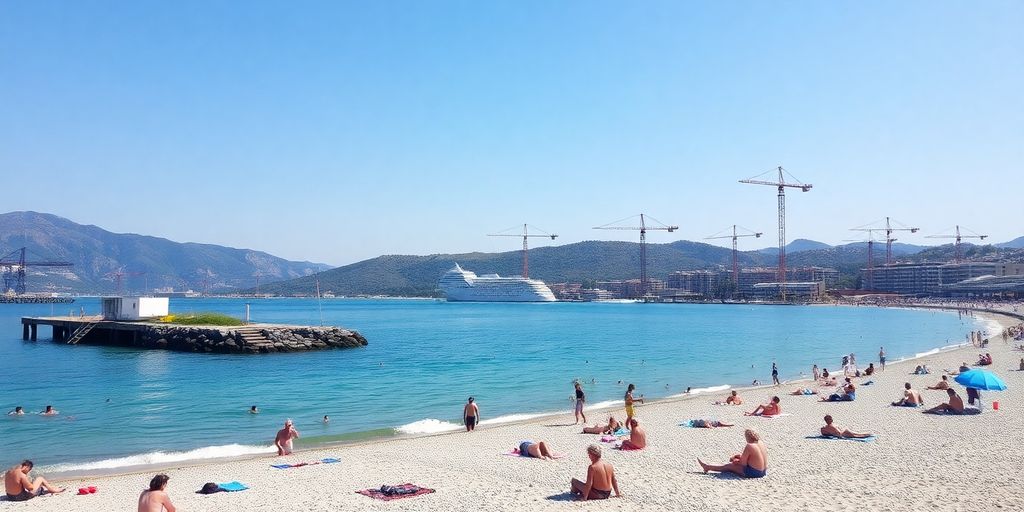Montenegro is currently embroiled in controversy following a significant investment deal with the United Arab Emirates (UAE) that aims to develop Velika Plaža, the country’s longest beach. The agreement has sparked widespread protests from citizens and environmental activists who fear it undermines local laws and environmental protections.
Key Takeaways
- Montenegro signed a lease agreement with UAE’s Eagle Hills for the development of Velika Plaža.
- The deal has triggered protests from citizens and environmental groups.
- Critics argue the agreement bypasses local laws and favors foreign investors.
- President Milatović supports the protests, emphasizing the need for adherence to local laws.
Background of Velika Plaža
Velika Plaža stretches over 12 kilometers along Montenegro’s Adriatic coast, making it not only the longest beach in the country but also one of the longest in Europe. Its pristine sands and natural beauty have earned it international acclaim, including recognition from The New York Times as a top travel destination.
The Controversial Deal
The lease agreement with Eagle Hills has raised several concerns:
- Bypassing Local Laws: Critics argue that the deal circumvents existing regulations designed to protect local interests and the environment.
- Foreign Investment Concerns: Many citizens feel that the agreement prioritizes foreign investors over local communities, potentially leading to exploitation of natural resources.
- Environmental Impact: Activists are worried about the ecological damage that could arise from large-scale development on the beach.
Public Response
In response to the deal, protests have erupted across Montenegro, with citizens demanding transparency and accountability from their government. Demonstrators have expressed their desire to protect their national heritage and ensure that any development respects local laws and environmental standards.
Government’s Stance
President Milatović has publicly supported the protests, stating that any investments in Montenegro must align with the country’s legal framework and community needs. His administration is under pressure to reassess the agreement and engage in dialogue with the public to address their concerns.
Political Reactions
The political landscape surrounding the deal is divided:
- Supporters: Some government officials, including Prime Minister Milojko Spajic, argue that the agreement represents a historic opportunity for economic growth, promising investments that could transform the Ulcinj region.
- Opponents: Critics, including local political leaders and environmental activists, argue that the deal is a form of state robbery, undermining national sovereignty and local interests. They emphasize the need for public consultation and adherence to legal procedures.
Conclusion
The backlash against the UAE beach deal highlights the delicate balance between attracting foreign investment and protecting national interests. As Montenegro navigates this controversy, the outcome may set a precedent for future foreign investments in the region, emphasizing the importance of community involvement and environmental stewardship in development projects.
Sources
- Investment deal with UAE sparks protests in Montenegro, bne IntelliNews.
- Public Outcry Erupts Over Montenegro’s Controversial Beach Deal with UAE Firm, BalkanEU.
- Montenegro Investment Deal With UAE Raises Fears for ‘Untouched’ Beach, Balkan Insight.
- Montenegrin parl opens way for UAE investments in tourism | Montenegro Politics News, SeeNews.
- Video. Montenegro beach deal with UAE firm triggers public backlash, Euronews.com.






